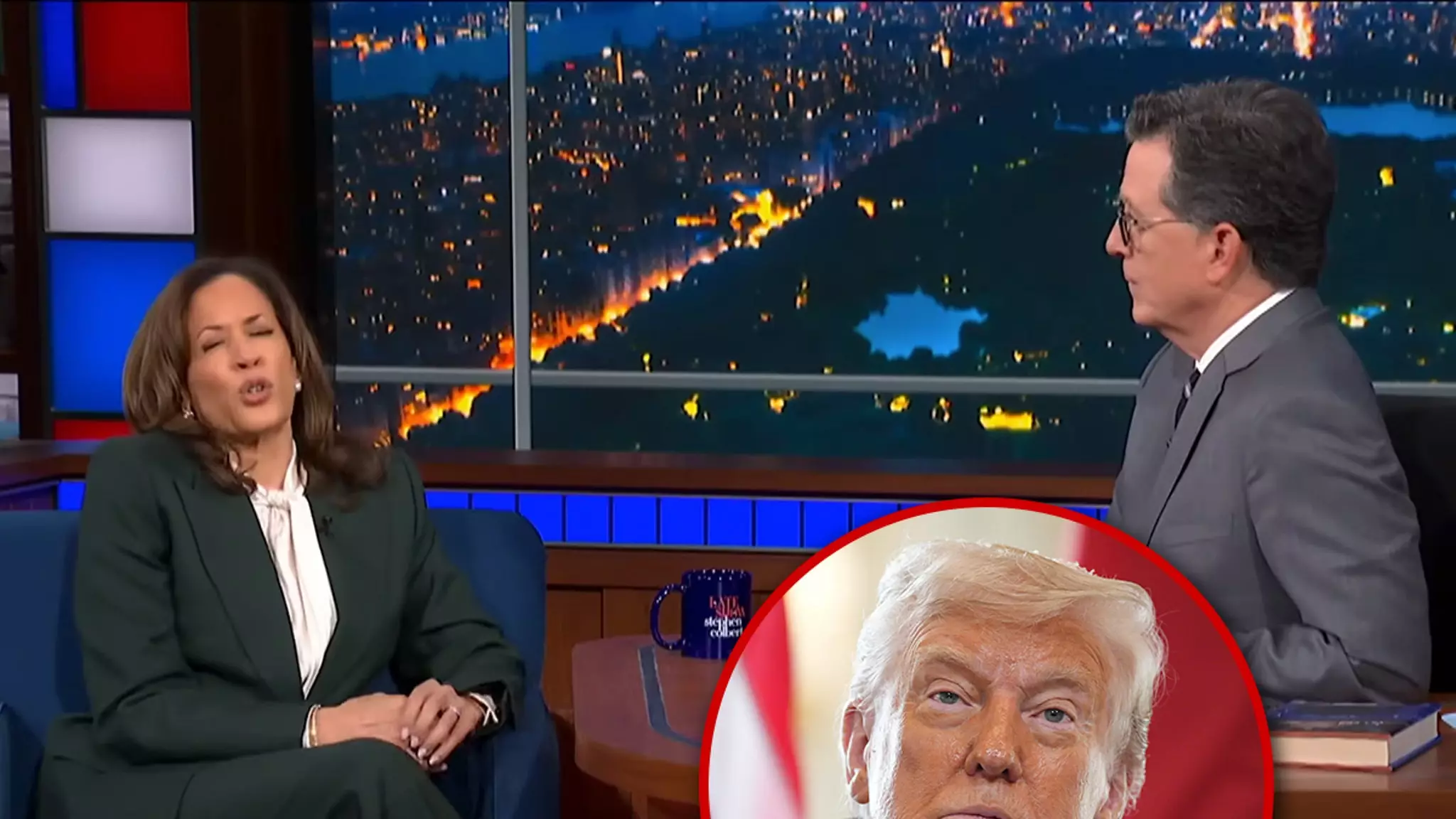In her recent appearance on “The Late Show,” Vice President Kamala Harris voiced an uncompromising assessment of the United States’ political landscape, describing the current state of democracy as “broken.” Such an unapologetic declaration signals not only her deep disillusionment but also her undeterred commitment to the enduring fight for democratic integrity. Harris’s critique is a stark departure from traditional political narratives that often focus on incremental reforms; instead, she dares to confront the foundational issues with clarity and urgency. Her assessment implies that the structural and institutional weaknesses have reached a tipping point, raising questions about whether the system can be salvaged without significant overhaul.
What sets Harris apart here is her willingness to openly express disillusionment, which many politicians tend to mask. Her belief that “our systems would be strong enough to defend our most fundamental principles” appears increasingly challenged by current events. Her analysis isn’t merely doom-and-gloom; it’s a call to action. Harris openly criticizes political inaction—specifically pointing fingers at Congress and the Supreme Court—highlighting the failure of these institutions to safeguard democratic norms amid mounting threats from various fronts. She perceives Congress as passive, “sitting on their hands,” and the Supreme Court as playing a role in immunizing future presidents rather than holding them accountable. These comments reflect her conviction that the very pillars of democracy are at risk of collapse if urgent reforms are not undertaken.
Strategic retreat or preparation for change?
Despite her critical tone, Harris clarifies that she does not plan to retreat from politics entirely. Instead, she intends to engage with ordinary Americans by traveling across the country, listening deeply to their concerns without soliciting votes. This approach reveals her belief that listening to the grassroots is essential for revitalizing democracy—something she likely perceives as neglected by the current political climate. However, her decision not to seek immediate elected office signals a nuanced strategy—she recognizes that the current system may not be receptive or capable of meaningful reform right now.
Her mention of the upcoming release of her book, “107 Days,” provides insight into her current state of reflection. The memoir about her presidential campaign suggests an introspective phase, arguably necessary before any future political moves. Importantly, her openness about the possibility of running for governor in California or for president in 2028 indicates a strategic patience, perhaps waiting for a time when the political environment is more conducive to substantive change. Her willingness to speak candidly about her frustrations and ambitions also positions her as a leader who values transparency and authenticity—traits sorely needed in today’s polarized climate.
The road ahead: a future defined by resilience and reform
Harris’s outspoken critique underscores a broader truth: American democracy is at a crossroads. Her candid opinions aren’t just personal reflections—they echo a collective anxiety about the stability of democratic institutions in the face of systemic failures. Her stance invites citizens and policymakers alike to grapple with uncomfortable questions: Are our legislative and judicial systems resilient enough? Can they be reformed to better serve the people’s interests? Harris’s willingness to voice these concerns, even while stepping back from electoral contests for now, demonstrates a strategic but heartfelt dedication to eventual renewal.
In an era where political disillusionment festers and trust in institutions erodes, Harris’s perspective injects a vital dose of realism intertwined with hope. Her critique urges us to consider whether our current trajectory is sustainable or if only bold, systemic reforms can restore faith in democracy. The questions she raises challenge us to look beyond surface-level political battles and confront the deeper, structural issues threatening the nation’s future. Her stance is a reminder that leadership isn’t solely about holding office—it’s about embodying resilience, speaking truth to power, and relentlessly pursuing a reinvigorated democratic process.

